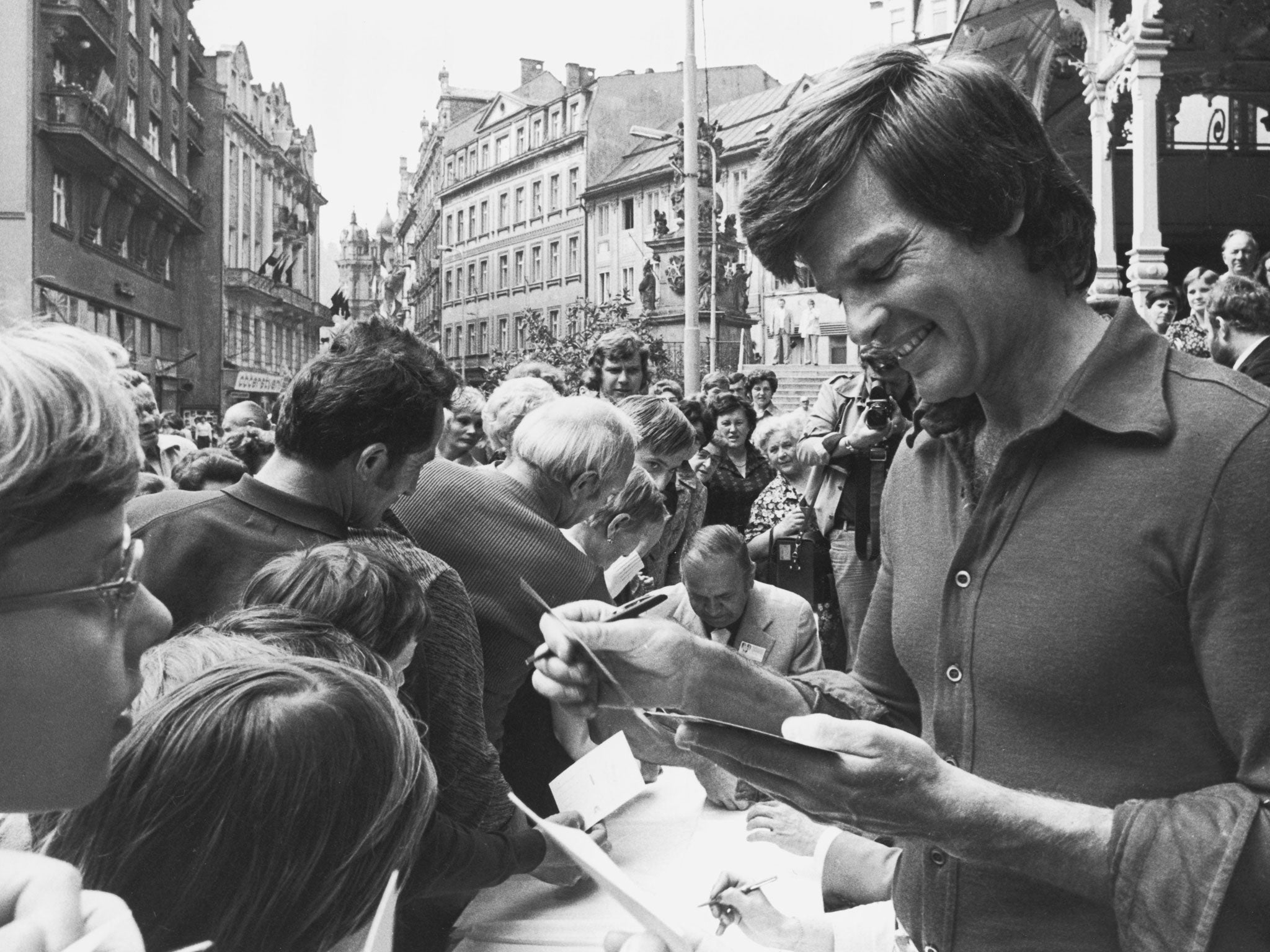Hello Lenin! How the 'Red Elvis' went East
Book traces fate of Cold War defectors who went the 'wrong way'

With his wavy hair and raunchy stage voice, Dean Reed was feted by the rulers of communist East Germany as socialism's answer to Elvis Presley. He was one of the most famous Westerners to defect to the East during the entire Cold War. Yet Reed, an American singer with socialist convictions who moved to East Berlin in 1973, was not an isolated case among the disgruntled Westerners who defected the "wrong way" during Europe's post-war division.
Where Is Lieutenant Adkins?, a new book by the German author Peter Köpf, reveals that there were hundreds of Dean Reeds. Most were British, American and French Nato soldiers who fled East while serving in West Germany during the Cold War. Köpf traces the fates of many of the more than 200 who defected east in the 12 years before the building of the Berlin Wall in 1961. "This corrects our picture of history which holds that it was mainly soldiers from the East who escaped to the West," the author told The Local, a German website.
While many of the defectors went East out of political conviction, there were also those who did so to escape institutionalised racism and to avoid being drafted. Inevitably there were those who defected for love. But Köpf's book shows that many of the defectors soon came to realise that their move was a catastrophic mistake.
Early on in the Cold War, Nato soldiers were welcomed with open arms by East Germany as "living proof" that communism was superior to capitalism. One of them was a 19-year-old paratrooper from Falkirk called Jack Stuart, who defected to East Germany in 1949. Köpf reveals that Stuart went East more out of adventure than political conviction. Yet the East German regime fully exploited his propaganda potential. Stuart was invited to speak at communist Free German Youth movement rallies and in 1950 he was pictured on the cover of an East Berlin magazine with the headline: "Why I went East? Because I want peace." But a year later, Stuart was broke and desperate. He robbed and murdered his landlord's wife and fled to West Berlin. The Stasi lured him back to the East where he was sentenced to life imprisonment.
Charles Lucas, a black American soldier whose Stasi file prompted Köpf's book, fled the US army to marry a German girl he had met in West Germany. He claimed he had been forbidden to do so by his superiors. In 1951 the couple defected to East Germany, where Lucas worked as a baker. But his wife soon returned to West Germany, and in 1956, the lonely Lucas committed suicide.
William Adkins, the US army lieutenant who inspired the book's title, appears to have been a true communist believer who wanted to start a new life in the Soviet Union. However, he got only as far as East Germany, where he worked as a Stasi informant and later as a journalist. Mysteriously, all traces of Adkins disappear in 1963. Köpf suggests that he may have been working as a double agent and could have returned to the West under a new identity.
The author was able to find and interview only one former US army defector who went East. Victor Grossman still lives in Berlin. Born Stephen Wechsler, he joined the US army at the height of the McCarthy era, having lied to the authorities about his membership of leftist organisations. He defected to East Germany from his unit in Nuremberg in 1951 and subsequently worked as a journalist for the communist regime. In 1994, the case against him was closed and he was able to travel to America and obtain an official army discharge.
Grossman is one of the few defectors whose story did not end in tragedy. Even Dean Reed, the "Red Elvis" of the East, committed suicide. His body was found in an East Berlin lake in 1986 – three years before the fall of the Berlin Wall.
Subscribe to Independent Premium to bookmark this article
Want to bookmark your favourite articles and stories to read or reference later? Start your Independent Premium subscription today.

Join our commenting forum
Join thought-provoking conversations, follow other Independent readers and see their replies